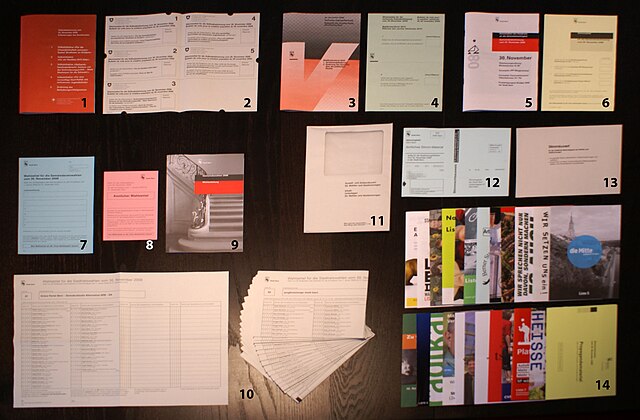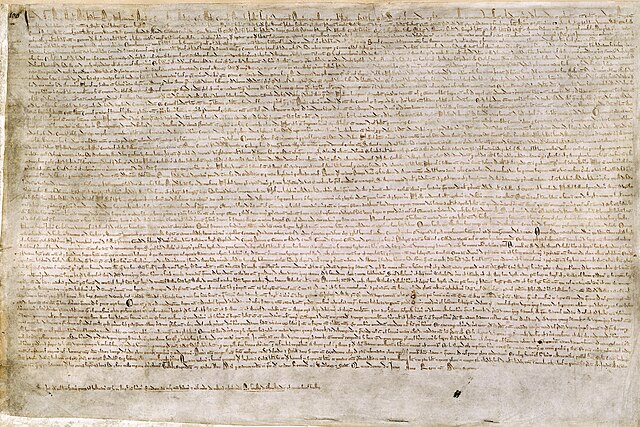Direct democracy or pure democracy is a form of democracy in which the electorate decides on policy initiatives without elected representatives as proxies. This differs from the majority of currently established democracies, which are representative democracies. The theory and practice of direct democracy and participation as its common characteristic was the core of work of many theorists, philosophers, politicians, and social critics, among whom the most important are Jean Jacques Rousseau, John Stuart Mill, and G.D.H. Cole.
A Landsgemeinde, "cantonal assembly", in the canton of Glarus on 7 May 2006, Switzerland. Landsgemeinden are public voting gatherings and are one of the oldest examples of direct democracy.
In Switzerland, with no need to register, every citizen receives the ballot papers and information brochure for each vote and election and can return it by post. Switzerland has various directly democratic instruments; votes are organized about four times a year. Here, the papers received by every citizen of Berne in November 2008 about five national, two cantonal, four municipal referendums, and two elections (government and parliament of the City of Berne) of 23 competing parties to take care of at the same time.
Practicing direct democracy – voting on Nuit Debout, Place de la République, Paris
Democracy is a system of government in which state power is vested in the people or the general population of a state. Under a minimalist definition of democracy, rulers are elected through competitive elections while more expansive definitions link democracy to guarantees of civil liberties and human rights in addition to competitive elections.
Nelson Mandela casting his ballot in the 1994 South African general election. In the 1990s, the dissolution of apartheid in favour of universal suffrage allowed tens of millions of South Africans, including Mandela, to vote for the first time.
Magna Carta, 1215, England
John Locke expanded on Thomas Hobbes's social contract theory and developed the concept of natural rights, the right to private property and the principle of consent of the governed. His ideas form the ideological basis of liberal democracies today.
Statue of Athena, the patron goddess of Athens, in front of the Austrian Parliament Building. Athena has been used as an international symbol of freedom and democracy since at least the late eighteenth century.







